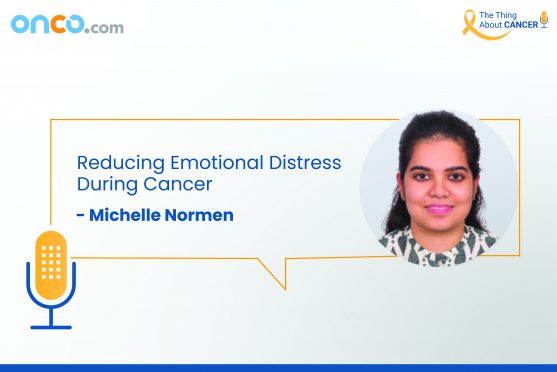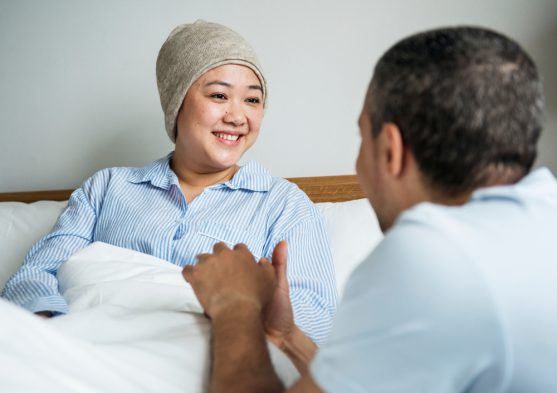If your loved one is facing the uphill struggle of a cancer diagnosis and treatment, it is expected that she or he will experience some emotional distress. Feelings of denial, anger, and even depression might disrupt their everyday life.
However, if these feelings do not subside two weeks after the diagnosis and are affecting the person to an extent that they are unable to continue simple everyday tasks and activities, then it might be time to do something about it.

Michelle Normen is the Head of Psycho-oncological Services at Cytecare Hospitals. She focuses on helping cancer patients and caregivers cope with the mental and emotional effects of cancer. She has handpicked the best tips for dealing with emotional distress and has shared them with us in this video.
Is this emotional distress?
Most patients of cancer do experience some amount of sadness and fear. If this feeling deepens, it could lead to depression and the person may isolate themselves from everyone else. To avoid this, it is good to keep track of how they are feeling and whether they are coping better with passing time.
It is important to give them the time to accept their cancer diagnosis. But if their emotions are so strong that they are unable to carry out daily activities, or are unwilling to engage with others, then they should consider taking the help of a professional to improve their emotional and mental wellbeing.
What can I do to help them?
Michelle agrees that it’s very common for friends and family to ask cancer patients to stay cheerful or to remain positive. This sort of advice is easy to give but very difficult to follow.
If the patient feels the pressure to look happy, they might hide their true feelings and keep it to themselves. In the long run, this proves to be more harmful than displaying negative feelings.
Instead of telling them what to feel and what not to feel, focus on doing positive activities together. Help them stick to their routine, and to get going with their work. Find hobbies that they will enjoy.

We have more ideas on how to help a friend who has cancer.
Here are some things you can do to help your loved one reduce emotional distress:
-
Involve the patient in the treatment
Help them understand the treatment. They should be able to freely ask questions about what is going to happen and what needs to be done.
-
Help them maintain a routine
Focus on improving their old routine, to ensure that the patient gets enough rest, proper diet and also does whatever work they are able to do. Include simple physical activities and ensure that they stay hydrated.
A routine helps create a feeling of normalcy and will improve the patients sleep pattern as well.
Allow the patient to be independent in tasks that they are still able to do on their own. It will also help them feel more active and healthy.
-
Avoid information overload
You will find a lot of information on the internet, and from well-wishers about different foods that help in recovery, or different alternative therapies. Trying to read more about this might lead to more confusion as each source will give you a different set of instructions to follow.
Stick to what your doctor advises you and avoid following unconfirmed sources. If you have any doubts or queries, ask your medical team directly.
-
Focus on what can be controlled
Avoid giving too much attention to what has already happened or what cannot be controlled. Focus instead on conserving their energy for positive activities that can engage their mind, like work or hobbies.
-
Talk about other things
Have conversations on topics other than cancer. Divert their mind to things that are pleasant or interesting for them. This will improve their quality of life.

-
Ask for help
Being a caregiver can be challenging and when you feel stressed or exhausted, take a break. Ask someone to help you, without feeling ashamed for needing help.
If you feel frustrated, you might pass the feeling on to the patient in your care. Taking time off for yourself is important as it helps you take better care of the patient.
We have a self-care menu for caregivers to help you relax and rewind within the limited time available for you.



